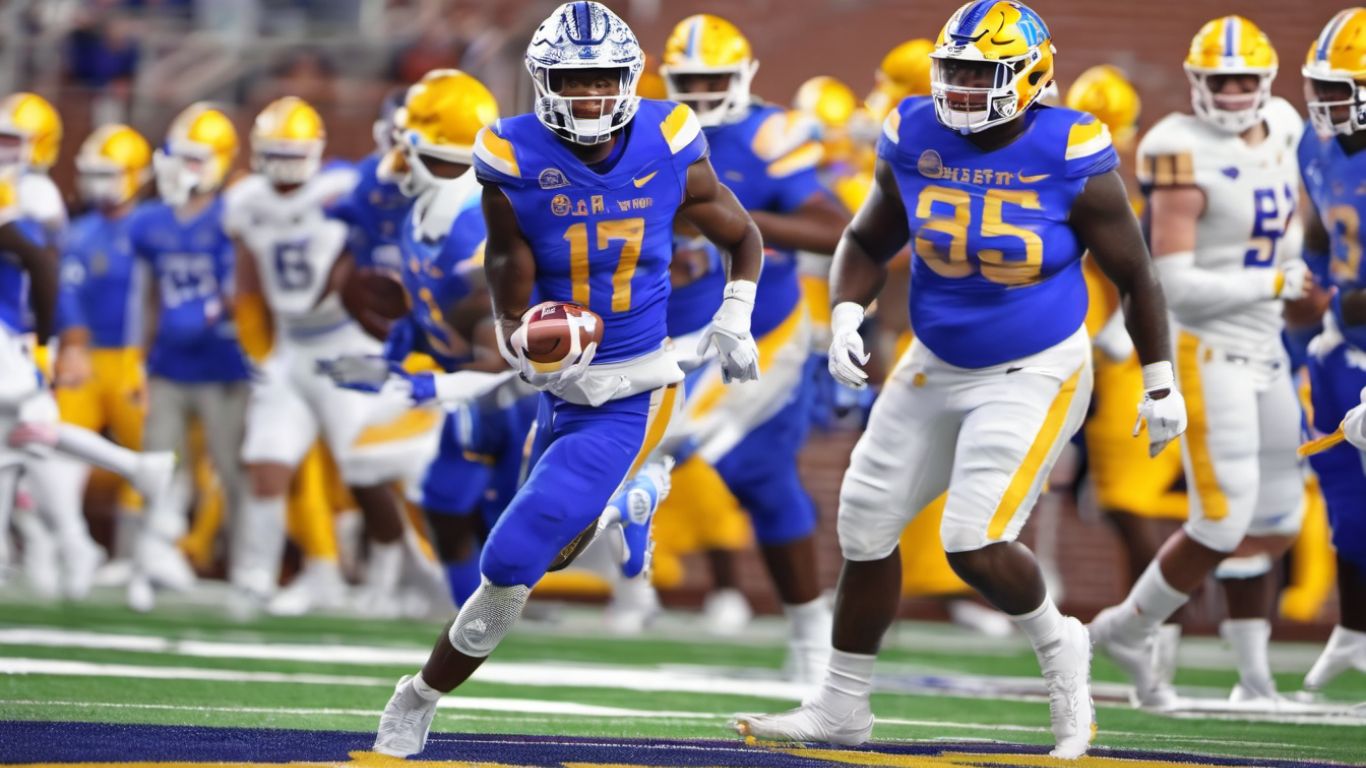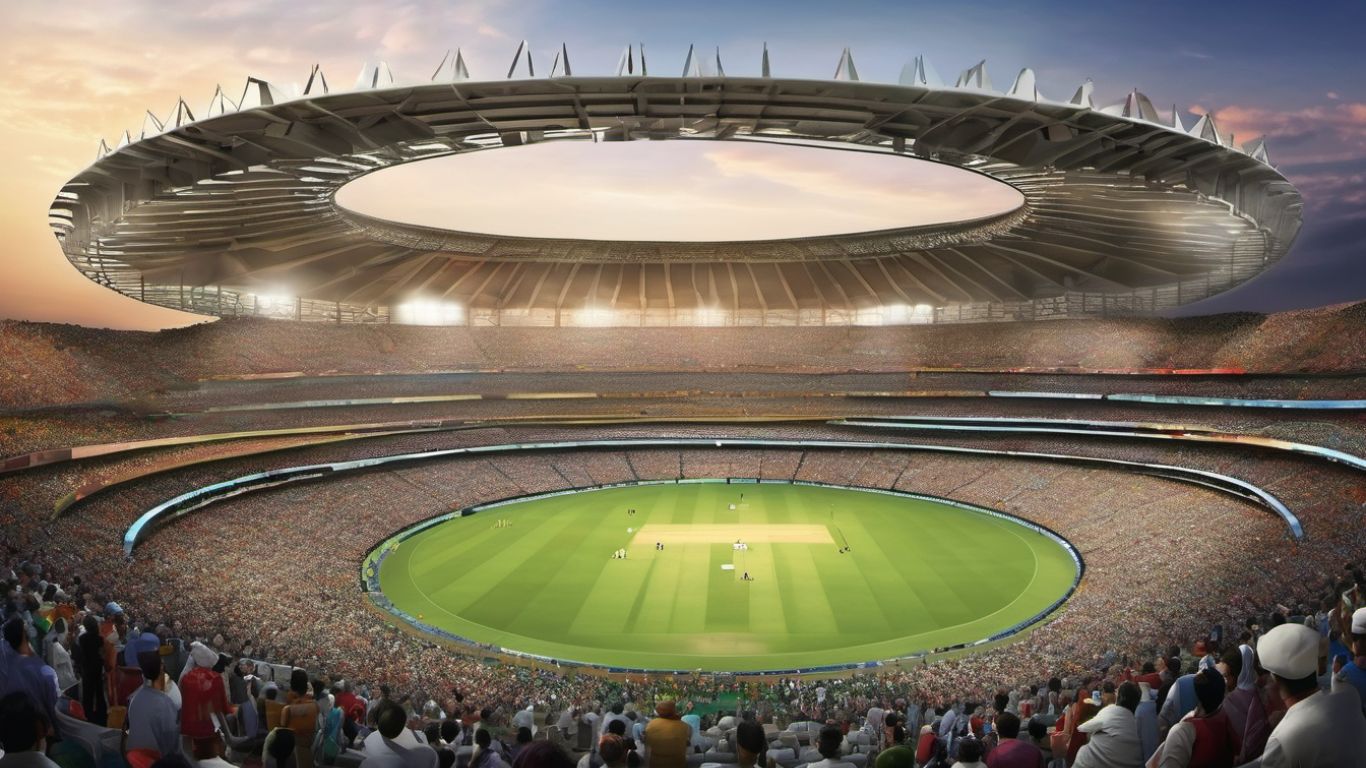Football, or soccer as it is known in some parts of the world, is undoubtedly one of the most popular sports on the planet. With its massive fan base and global appeal, it’s no wonder that millions worldwide watch and celebrate football matches. However, have you ever wondered how long the average football match lasts? In this article, we will delve into the ins and outs of football games, taking a closer look at the actual time it takes for a match to unfold, including hidden factors that can significantly affect the overall duration of a game.
While it may seem straightforward, determining the exact duration of a football match is more complex than it appears. On average, a professional football game lasts around 90 minutes. However, this does not include the additional time added by the referee at the end of each half, known as “injury time” or “stoppage time.” Injury time compensates for any time lost during the game due to injuries, substitutions, time-wasting, or other interruptions that may occur.
As such, the total duration of a match can easily extend beyond the expected 90 minutes, sometimes leading to nail-biting finishes or unexpected twists and turns on the field. In the following sections, we will explore the factors contributing to these time extensions, shedding light on the intricacies of football games and the unpredictable nature that keeps viewers on the edge of their seats.
The Duration of Football Matches: Understanding the Factors that Influence Game Length
Football matches have long been a beloved pastime for fans around the world. Whether played on a grand stadium or a small field, the thrill of the game keeps spectators engrossed from the first whistle to the final moments. However, have you ever wondered about the exact duration of a football match? Why do some games fly by while others stretch on endlessly? In this section, we delve into the factors influencing the length of a football match to help you understand this intriguing aspect of the beautiful game.

Credit football.com
One of the primary factors determining a football match’s duration is the level of play. If you’ve watched professional football, you might have noticed that these matches are more extended than amateur games. This is primarily due to professional players’ higher skill levels and tactical complexity. With superior control and decision-making abilities, professional footballers usually need more time on the pitch to create opportunities, execute strategies, and score goals. Consequently, professional football matches often last approximately 90 minutes, divided into two 45-minute halves.
Additionally, the pace of the game can influence its duration. Some teams prefer a fast-paced style that involves quick passing and constant movement, while others prefer a slower, more methodical approach. Teams prioritizing ball possession and intricate build-up play may take longer to construct attacking moves and wear down their opponents. Conversely, teams that rely on counter-attacking strategies may play faster, aiming to catch their opponents off guard. Therefore, depending on the tactical choices made by both teams, the duration of the match may vary.
The number and length of stoppages during a game also impact its duration. Football matches incorporate pauses for various reasons, such as injuries, substitutions, and time-wasting tactics employed by teams. Typically, the referee adds time, known as stoppage or injury time, to compensate for these interruptions at the end of each half. The duration of stoppage time can depend on the number and length of the disruption during the game. For example, multiple substitutions or a series of injuries can prolong the match beyond 90 minutes.
Furthermore, different competitions may have varying rules regarding added time. In cup competitions or knockout stages, where the stakes are higher, referees may be more liberal in adding stoppage time to ensure a fair and complete match. On the other hand, in league competitions, where teams accumulate points over a season, referees may adhere more strictly to the designated 90 minutes. These variations in added time can contribute to the overall duration of a football match.
Lastly, the conduct of the players on the field can also influence the time it takes for a match. Instances of unsporting behaviour, such as simulation or arguing with the referee, can lead to further stoppages. Subsequently, these delays can impact the overall duration of the game. Additionally, the occurrence of yellow and red cards can result in extra time added by the referee.
Various factors influence the duration of a football match. The level of play, the pace of the game, the number and length of stoppages, the competition rules, and the conduct of the players all play a role in determining how long the match will last. From the sublime skills of professional players to the tactical choices made by teams, every aspect adds to the rich tapestry of the game’s duration. So, the next time you settle in to watch a football match.
Halftime Hustle: Exploring the Length and Purpose of Halftime Breaks
In football, halftime breaks are pivotal, providing players, coaches, and spectators with a much-needed chance to catch their breath and regroup. While we often take this brief intermission for granted, understanding the length and purpose behind halftime breaks can give us valuable insight into the dynamics of a football match.
One might assume that halftime breaks are set to a specific time limit, but this is not the case. The length of these breaks can vary depending on factors such as the league, competition rules, or weather conditions. A halftime break typically lasts around 15 minutes in professional football. However, in specific tournaments, such as the FIFA World Cup, halftime breaks are extended to about 20 minutes. This additional time allows players to mentally and physically recover, receive tactical instructions, and make necessary changes to their game plan.
During halftime, players rush towards the dressing rooms, taking advantage of these minutes to replenish their energy levels, hydrate, and address any minor injuries sustained during the first half of the game. The changing rooms become a hub of activity as players receive medical treatment, change jerseys, and gear up for the intense battle ahead in the second half. Coaches, on the other hand, seize this opportunity to engage in detailed team talks, analyze the match so far, identify areas of improvement, and strategize for the second half.
The halftime break may appear short, but it plays a crucial role in boosting players’ performance. The break allows their bodies to recover and recharge, reducing the risk of exhaustion and injury. Moreover, halftime breaks give players a mental breather, helping them reset their focus, evaluate their performance, and prepare for the challenges that await them on the pitch.
Beyond the players and coaches, halftime breaks also play a pivotal role for spectators. During this time, individuals at the stadium and those watching from home can engage in discussions, take restroom breaks, grab refreshments, or stretch their legs. It is not uncommon for fans to partake in lively debates, analyzing the game thus far and predicting the outcome of the remainder of the match. These short downtime breaks foster community, camaraderie, and excitement among football enthusiasts.

In addition to providing a chance for rest and recovery, halftime breaks also serve as an opportunity for commercials and advertisements. These scheduled breaks strategically place advertisers in the limelight, especially during high-profile matches that attract millions of viewers worldwide. Advertisements during halftime have become an integral part of football culture, providing a platform for companies to showcase their products and services to a captive audience.
Halftime breaks in football are crucial to the rhythm and course of the game. Although their length can vary, they provide players, coaches, and fans alike with an opportunity to pause, recharge, and strategize. These short intervals contribute significantly to the overall ebb and flow of the match, ensuring a deeper engagement with the game for all involved.
Stoppage Time: Unpacking the Reasons Behind Added Minutes at the End of Matches
Anyone who has watched a football game knows that time can become fluid once the clock hits the 90th minute. This period, known as stoppage time, refers to the additional minutes added to the end of a match. While some spectators may welcome the extended play, others may grow anxious as they eagerly await the final whistle. So, what exactly determines the length of stoppage time, and why is it added in the first place?
The primary purpose of stoppage time is to compensate for any breaks in play that occur during a match. These breaks include injuries, substitutions, time-wasting tactics, and occasional pitch invasion. Collectively, these factors can disrupt the game flow and cause delays, potentially impacting the fair distribution of time across the two halves. By adding extra minutes at the end, referees aim to ensure that both teams have equal opportunities to make their mark on the game.
Injuries are one of the main reasons for stoppage time. When a player gets injured, the referee usually stops the match to allow medical staff to come onto the field and provide the necessary treatment. Depending on the severity of the injury, this interruption can vary from a few seconds to several minutes. To compensate for this lost time, the referee adds minutes to the end of the match. It is important to note that stoppage time only begins once the scheduled 90 minutes of regular play have been completed, regardless of the number of injuries that occurred throughout the match.
Substitutions, too, contribute to the length of stoppage time. When a team makes a substitution, the game comes to a halt momentarily as players switch places, and the referee ensures that the substitution is carried out correctly. Although each substitution may only take a few seconds, when accumulated throughout the game, they can significantly impact the overall duration. Again, to account for these brief interruptions, the referee adds extra time at the end.
Another reason for stoppage time is the time-wasting tactics teams use to protect a lead or draw. These tactics, such as slow throw-ins, exaggerated goal celebrations, or excessive goalkeeper delay, can slow down the game and frustrate the opposing team. Referees often attempt to discourage such behaviour by adding stoppage time, effectively penalizing the team responsible. This ensures that the game is fair and that teams cannot manipulate the outcome by wasting time.
In rare cases, events beyond the control of players or officials, such as pitch invasions or severe weather conditions, can also lead to extended periods of stoppage time. These situations require additional time for the match to resume safely. For example, a pitch invasion by enthusiastic fans celebrating a last-minute goal might require the referee to halt the proceedings until order is restored temporarily.
Stoppage time, controversial as it may be at times, serves an essential purpose in football games. It allows matches to maintain fairness and ensure all teams have equal participation opportunities. While it may occasionally add a few extra minutes to an already tense game, it is an integral part of the sport. It contributes to its unpredictability, drama, and excitement for players and spectators alike.
The Impact of Match Importance: How the Nature of the Game Affects its Duration
Football games have always been a source of excitement and anticipation for fans worldwide. From the pre-match rituals to the final whistle, every moment of a football match is filled with intensity and emotions. However, have you ever wondered why some matches last longer than others? The answer lies in the importance of the game and how it affects its duration.
When it comes to football, the importance of a match can vary greatly. From friendly matches to league games, cup finals, and international tournaments, each type of game carries different significance levels. Match importance impacts the duration of the game directly.

Let’s start with friendly matches, usually played before or during the preseason. These matches are warm-up games to prepare the team for upcoming competitive fixtures. Since the outcome of a friendly game doesn’t directly affect the team’s performance or overall standings, they tend to be more relaxed. As a result, the duration of friendly matches is often shorter, typically lasting around 90 minutes.
On the other end, we have cup finals and crucial league matches. These games are immense in importance as they can determine the destiny of important trophies or affect a team’s position in the league table. When the stakes are high, the intensity on the pitch increases, leading to longer match durations.
In cup finals, for instance, where the pressure to win is enormous, matches can extend beyond 90 minutes due to extra time and penalty shootouts. The added time brings an element of suspense and drama as teams battle it out to lift the coveted trophy. These games can vary in length but typically last around two hours or more, including injury time.
Similarly, league matches towards the end of the season can also be packed with tension. Every point matters When teams fight for promotion, relegation, or a spot in European competitions. The urgency to secure a win or salvage a draw often leads to longer match durations as players push themselves to the limit.
International tournaments are another prime example of how the importance of a game can impact its duration. Whether it’s the FIFA World Cup or regional championships like the UEFA European Championship or the Copa America, these events bring together the best players and teams from around the globe. The opportunity to represent their nations and the desire to win for their country creates unparalleled intensity and determination. Matches in these tournaments can last longer due to extra time and penalty shootouts and extend to a nail-biting two hours or more.
The impact of match importance plays a crucial role in determining the duration of a football game. Friendly matches, which hold little significance regarding the outcome, tend to be shorter. On the other hand, cup finals, crucial league matches, and international tournaments can stretch the game’s duration due to the added pressure and higher stakes. The game’s significance influences the players’ intensity, the style of play, and the overall excitement, making each match a unique spectacle for fans to enjoy.
Mind the Clock: Analyzing Time-Wasting Tactics and Their Effect on Game Length
In football, the thrill of competition often comes with the ups and downs of dramatic moments, intense action, and nail-biting finishes. However, another significant factor that can heavily influence the course of the game is the manipulation of time. Some teams resort to time-wasting tactics as a strategic ploy to gain an advantage over their opponents. With each passing minute, the clock becomes a precious ally or a formidable foe.
Time-wasting tactics can take various forms, from simple actions to more deliberate and coordinated efforts. Common examples include players deliberately delaying a restart, faking injuries to waste time, or excessively celebrating goals. While frustrating for fans and opposing teams, these tactics are not without purpose. The aim is often to disrupt the game’s rhythm, frustrate opponents, and preserve a favourable scoreline or lead.
One of the most straightforward and commonly observed time-wasting techniques is the slow walk to retrieve the ball for a throw-in or goal kick. Players intentionally stroll towards the ball, taking their sweet time before putting it back into play. This seemingly innocuous act can be remarkably effective when a team protects a narrow lead and wants to run down the clock. Doing so reduces the time their opponents have to mount an offensive challenge, thereby increasing the chances of securing victory.
Faking injuries is another well-known time-wasting method that divides opinions. While some argue it is a clever way for players to gain an advantage, others see it as unsportsmanlike conduct. When a player goes down after a mild foul, it often takes several minutes before they miraculously recover and continue the game. This tactic allows the team to waste valuable seconds or minutes, disrupting their opponents’ momentum. Consequently, it can be an effective tool for turning the tide in a tightly contested match.
Excessive goal celebrations are an attention-grabbing, time-wasting tactic that often draws mixed reactions from fans. Players, overwhelmed with joy after scoring, sometimes prolong their celebrations to eat up precious seconds on the clock. Rolling on the ground, choreographed group celebrations, or retrieving the ball from the net with exaggerated slowness are all strategies to frustrate the opposing team and fans alike. While they may excite supporters, these antics can sometimes be perceived as unsportsmanlike.
The cumulative effect of these time-wasting tactics is an increase in the duration of matches. Every minute wasted compounds the game’s length, affecting the flow, intensity, and drama fans love. While football’s governing bodies have taken measured steps to address time-wasting and reduce its impact, it remains a persistent part of the game. Referees are tasked with identifying and penalizing excessive time-wasting, but the blurred lines between genuine pauses and intentional delay can make the task challenging.
Frequently Asked Questions
1. How long does a football match typically last?
A football match is divided into two halves of 45 minutes each, plus any additional time added by the referee, known as stoppage or injury time. The duration of stoppage time varies depending on factors such as substitutions, injuries, and time wasted during the game. On average, a football match lasts approximately 90 minutes, including stoppage time.
2. Why does stoppage time exist?
Stoppage time is added at the end of each half to compensate for the time lost due to various interruptions during the match, such as injuries, substitutions, and time-wasting tactics employed by teams. The extra time ensures that both teams have an equal opportunity to play 45 minutes in each half.
3. Can a football match end in a tie?
A football match can end in a tie, especially in regular league games. However, in competitions where a winner must be determined, such as knockout tournaments or playoffs, extra time or a penalty shootout may specify a winner if the match remains tied after regulation time.
4. How long does extra time last?
In knockout competitions, an additional period called extra time is played if a match ends in a tie after regular time. Typically, extra time consists of two halves of 15 minutes each, and teams switch sides at halftime. A penalty shootout may decide the winner if the score remains tied after extra time.
5. How is extra time different from stoppage time?
Stoppage or injury time is added within regular time to compensate for delays during a half of play. On the other hand, extra time is an additional period played after the completion of regulation time in some competitions to determine a winner when the match ends in a tie.
6. What happens during halftime?
Halftime is the break between the two halves of a football match. It typically lasts for around 15 minutes and allows players to rest, rehydrate, and receive tactical instructions from their coaches. Spectators often use this time to grab refreshments or use restroom facilities.
7. Are there any breaks within each half?
Unlike American football or basketball, football matches have no scheduled breaks during each half. The 45 minutes of play in each half are continuous, with stoppages only occurring for injuries, substitutions, or other incidents that require the referee’s intervention.
8. Can a football match last longer than 90 minutes?
Yes, a football match can exceed 90 minutes in certain situations. Stoppage time is added to compensate for delays during the game, which can vary depending on the circumstances. Additionally, in knockout competitions, extra time is played if the match remains tied after regular time, which extends the duration. Consequently, a game can last more than two hours.
9. Is injury time always the same in every match?
No, the amount of injury or stoppage time added at the end of a match can vary widely depending on various factors. The referee decides on the amount of added time based on the number and duration of interruptions during the game, such as injuries, substitutions, or other stoppages. As a result, injury time can differ from one match to another.
10. Can matches be shorter for specific reasons?
In rare cases, matches can be shortened due to exceptional circumstances. For instance, if weather conditions deteriorate during the game, such as heavy rainfall or lightning.
Conclusion
Time-wasting tactics in football are both a strategic tool and a contentious aspect of the game. Deliberate efforts such as slow walks, simulated injuries, and excessive goal celebrations can significantly impact the course and length of matches. While effective in achieving short-term goals, these tactics can prove divisive among fans and players. Ultimately, striking a balance between maintaining the integrity and excitement of the game while curbing excessive time-wasting remains an ongoing challenge for football.
Football games are much more than 90 minutes of playtime on the field. A complex web of activities occurs behind the scenes, from the pre-match preparations to the post-match celebrations. The average football match can last anywhere from 2 to 2.5 hours, depending on various factors such as stoppage time, halftime breaks, and potential additional time. Throughout this time, players and referees give their all to deliver an entertaining and competitive game.
It is fascinating to delve into a football match’s intricacies and understand the complexities contributing to its duration. Whether watching a game from the comfort of your couch or cheering for your favourite team in the stadium, knowing the ins and outs of the time it takes for a football match can enhance your overall experience.
So, the next time you settle in to watch a game, take a moment to appreciate the dedication, skill, and effort involved in not just the 90-minute playtime but the entire event. Football truly offers an exciting blend of athleticism, strategy, and passion that captivates millions worldwide, making it one of the most beloved sports on the planet.








